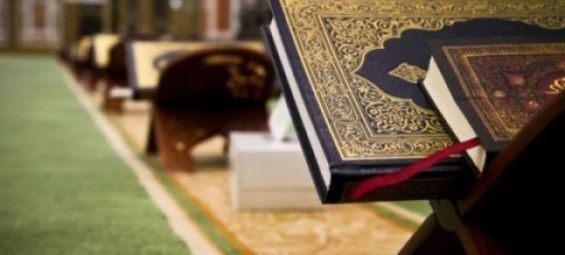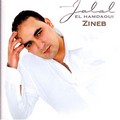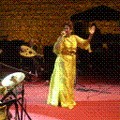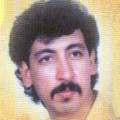From March 9 to April 12, a delegation of 274 religious officials will be deployed across various countries in Europe and North America as part of the annual Ramadan support mission initiated by the Hassan II Foundation for Moroccans living abroad (MRE).
Brahim Abbar, Head of the education and cultural diversity division at the foundation, indicated this Wednesday that the «Ramadan 2024» program aims to maintain ties with Moroccan citizens abroad while opening debates with them on religious and societal issues, based on expressed needs. «In an educational and cultural approach, it is also a question of consecrating the function of the mosque as a place open to societal interaction», added the official.
Abdellah Grari, Administrative executive at the Hassan II Foundation, declared to Yabiladi that the members of this year's delegation, men and women, would be «sent to various countries in Europe and North America, notably Sweden, Denmark, Hungary, Iceland, Canada, and the United States».
Asma Mesmoudi, Professor and researcher at the Rabita Mohammedia of Ulemas (Islamic scholars) and member of the delegation, told Yabiladi that through this process, «the objective is above all to enlighten our fellow citizens in terms of religious knowledge and personal development, in harmony with spiritual values».
On a mission for several years, particularly in the Netherlands, the researcher explains that «it is mainly a question of interacting around the notion of fiqh al-wâqî', or the study of reality, which places profane knowledge in the service of revealed knowledge, on the basis of our principles of the Malikite Acharite rite and the commandery of believers, promoting the golden mean for better harmony with oneself and with the host society».
«Based on my experience, I orient my interventions according to the elements of the daily life of my fellow citizens in their countries of residence, particularly in the family context. The goal is to adapt religious discourse to their questions, their needs, their expectations and their family interactions, in a simplified language also adapted to their understanding, whether linguistic or scientific. The support continues beyond this period, since we maintain contact outside the month of Ramadan», Asma Mesmoudi concluded.
Advocating the values of openness
Mohamed Lakhdar Derfoufi, professor of communication at the Mohammed I University of Oujda and member of the delegation for 2024, told Yabiladi that this mission was «an opportunity to renew and strengthen ties between fellow citizens in Morocco and abroad», during the special period of Ramadan.
«In this period marked by sharing and solidarity, in the secular and family atmosphere that we know in Morocco, we go to our fellow citizens in their countries of residence, to remind them that we don't forget them and that those who are far from their families are not alone», he tells us.
To this end, «the accompaniment has a religious character, but it is also a process of transmission and sharing of the country's Muslim rites, in terms of habits, rituals, Quranic readings according to the Moroccan method during prayers of tarawih...»
According to the researcher, «it is a way of preserving and maintaining the link with the motherland, while proposing to approach spirituality from the enlightened side, with a moderate and lenient religious discourse, in prevention of any extremism». In this sense, «it is also a question of offering support for young people, adapted to the third and fourth generations born abroad», he underlines.
This support and the interactions that result from it take on «the character of family reunions with fellow citizens from abroad, who often receive the members of the delegation at home, precisely as their relatives, or who come to them in cultural and religious centers», tells us Brahim Ait Oughouri, member of this year's mission, doctor in Islamic sciences and professor at the Polydisciplinary Faculty of Es-Semara.
«This spiritual work of transmission allows us to remember our common points of reference as Moroccans. This is also the basis of our interventions. It is a question of basing ourselves on the constants which are the commandery of believers, the Malikite rite, the Acharite method, Sufism based on the doctrine of Jûnayd, which advocates the knowledge of the divine Unity as the goal and finality of the spiritual quest».
For Brahim Ait Oughouri, «the goal is also to fill some gaps, which, in the absence of informed support, can open the way to extremism or radicalization».
«Encouraging the younger members of the Moroccan diaspora who are interested in religion to continue to do so is good. But the most important thing is to guarantee them support in the right way. That is to say, putting them in line with the idea that Islam is not based on violence, on rejection, on isolation and destruction to fight others because we would be right, but on the process of drawing from one's own ancestral religious values what is best to live one's spirituality in line with our current life, particularly in the countries of residence».
According to Mohamed Lakhdar Derfoufi, «the aim is to perpetuate this support and to strengthen the aspect of prevention against religious radicalization, in the medium term, through the promotion of an enlightened Islam. We can only prevent or combat a threatening phenomenon by proposing counterarguments and antitheses, based on the Moroccan model of spirituality, which aims to facilitate people's daily lives and not to make it more difficult. This is also the particularity of our theological movement in Morocco, which now attracts scholars from other countries and which is transmitted to them through academic training», he adds.





 chargement...
chargement...













